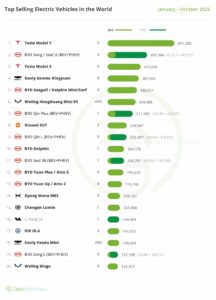Among the eligible EV’s for a U.S. tax credit, of up to $7,500 at the point of sale, are popular models such as the Chevrolet Bolt EUV and Bolt EV, along with select Tesla variants including the Model 3 Performance and Model Y. Additionally, plug-in hybrid vehicles such as the Chrysler Pacifica PHEV and Ford Escape PHEV qualify for tax credits ranging from $3,750 to $7,500.
The streamlined process for customers is another positive change, as buyers will now automatically receive the discount at participating dealerships, eliminating the need for cumbersome tax paperwork.
Notably, the tax credit aims to incentivise consumers to switch to EV’s while encouraging the purchase of models sourced in America, aligning with broader initiatives to boost manufacturing and clean energy investment nationwide.
Amidst this landscape, several automakers are ramping up investment in American battery plants, with Toyota and Ford leading the charge. Despite Ford’s scaled-back EV investment, citing consumer reluctance to pay premiums for electric models, the industry continues to grow, with automakers like Lucid, General Motors, Honda, Nissan, and Stellantis also investing in domestic battery facilities.
As the EV market evolves and regulations adapt, the availability of tax credits serves as a key factor influencing consumer choices and shaping the future of sustainable transportation in the United States.
Source: Visual Capitalist

EV Policy Europe 2010 – 2025: Why the ‘deer in the headlights’ strategy puts its Automotive future at risk
The European Commission’s 16 December announcement to ease the 2035 CO₂ reduction targets marks a pivotal moment for Europe’s automotive sector. After more than a decade in which the industry






